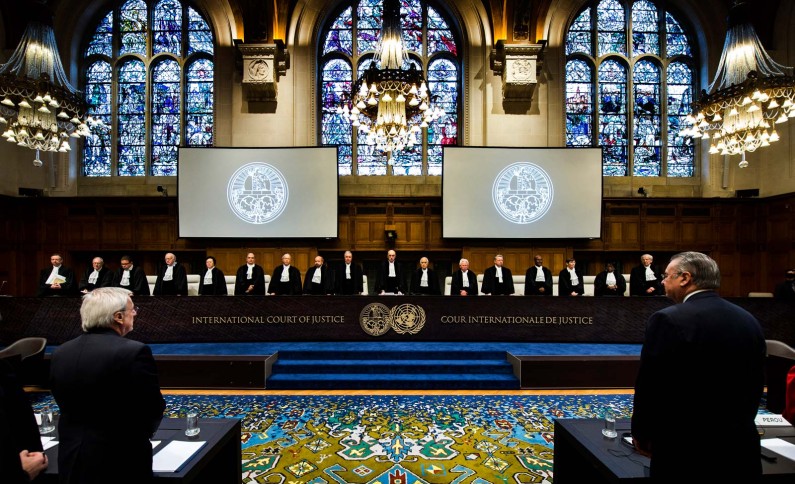
The International Court of Justice today announced that it will be moving ahead with public hearings in the Guyana vs Venezuela case concerning the 1899 Arbitral Award.
The Public Hearings will take place from the 23rd to the 27th March at the Court in the Hague.
In a statement this afternoon, the ICJ said the hearings will give the Parties to the case the possibility to address the question of the jurisdiction of the Court.
Venezuela has repeatedly said it will not take part in the hearings because it is of the view that the Court has no jurisdiction to hear the matter. Venezuela wants the controversy to be returned to the United Nations Good Offices Process. But it was the UN Secretary-General who forwarded the case to the ICJ after that Good Offices process failed to bring any results.
During the hearings before the ICJ, both Guyana and Venezuela will be expected to put forward their oral arguments in the case, with later rebuttals.
The entire hearing will be streamed live on the internet.
In an earlier statement, the Guyana Ministry of Foreign Affairs had indicated that the hearing will determine whether the Court has jurisdiction over the case filed by Guyana on March 29, 2018.
Guyana is seeking to obtain a final and binding judgment from the Court that the 1899 Arbitral Award, which established the location of the land boundary between then-British Guiana and Venezuela, remains valid and binding, and that Guyana’s Essequibo region belongs to Guyana, and not Venezuela.
Venezuela has claimed, in a letter to the Court, that the Secretary-General exceeded his authority under the Geneva Agreement, and that the Court, therefore, lacks jurisdiction to adjudicate Guyana’s lawsuit.
Venezuela had indicated that it will not participate in the proceedings.
The Foreign Affairs Ministry said under well-established judicial precedent, the Court will proceed to decide if it has jurisdiction over Guyana’s claims, irrespective of whether or not Venezuela participates in the proceedings.
If it decides that it has jurisdiction, the Court will proceed to rule on the merits of those claims and decide whether the validity of the 1899 Arbitral Award and the border between the two States should be confirmed.
Under the United Nations Charter and the Court’s own rules, its final judgments both on jurisdiction and the merits will be legally binding on Guyana and Venezuela, whether or not Venezuela participates in the proceedings.















You must be logged in to post a comment Login